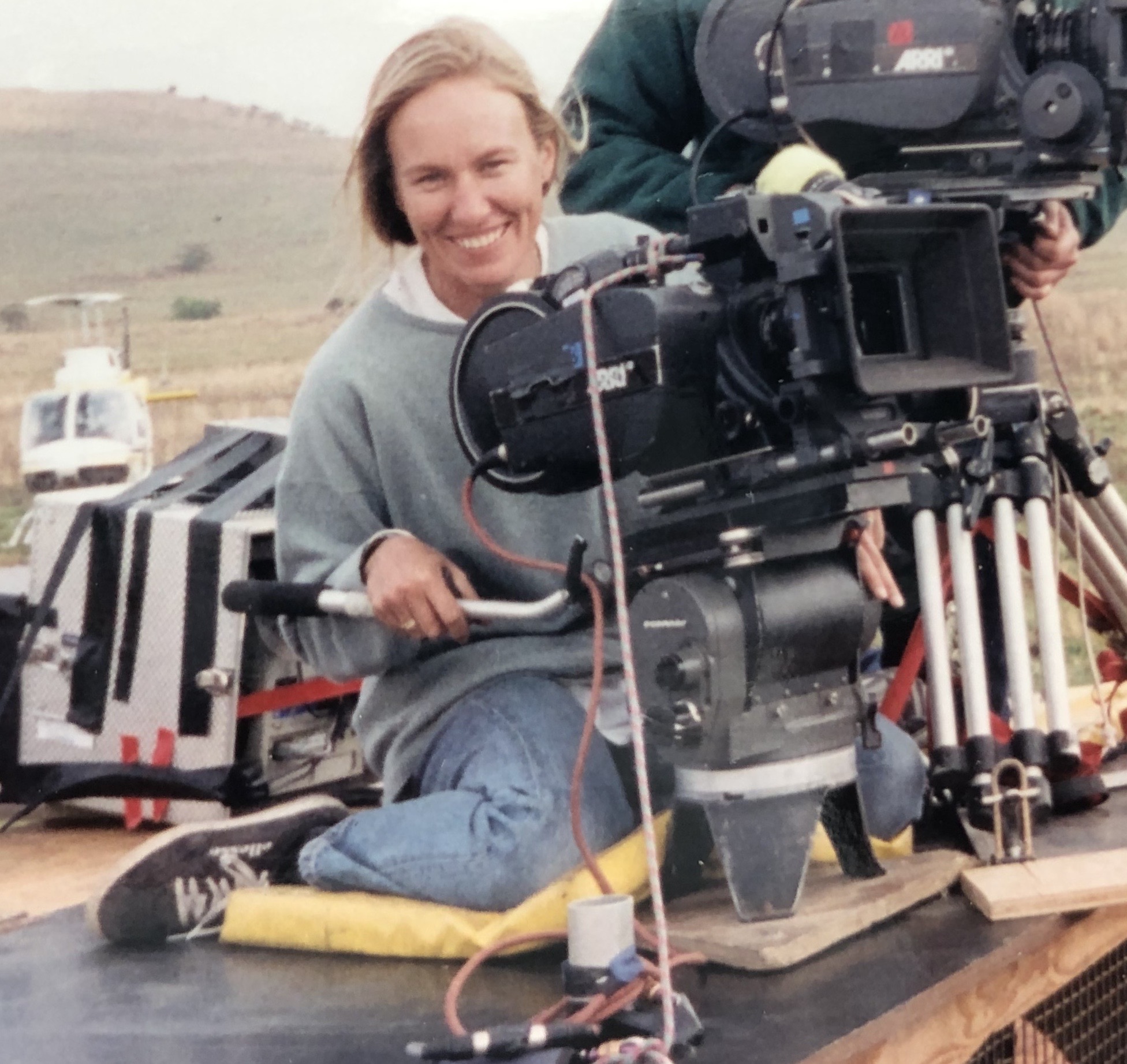LADIMA EXCLUSIVE:
We spoke to award-winning South African cinematographer, Vicci Turpin, about her extensive career shooting big brand commercials and internationally celebrated films including Four Corners (2013) and Poppie Nongena (2019)…
Give us a sense of your background as a cinematographer?
I started loving cameras at the age of 10 years or younger. I studied a 3 year ND in photography in Port Elizabeth. I then worked for a fashion photographer in Johannesburg. I joined Grey Phillips advertising agency in the 80s, during this time I also worked for free at Prime Cut Editors to learn the ropes in that area of filmmaking, whilst also going to ProGear in Auckland Park during any downtime I had to learn how to load film magazines.
I eventually started as a loader in the 80s on commercials, and then moved to films as a loader, focus puller, and finally, operator. I came into the camera world in a kind of amphibious way as I had become a good underwater operator and people then trusted me to operate a camera on the land. I started lighting on 2nd unit whilst being an operator, then commercials as a Director of Photography (DoP)…
Finally I got accepted into SASC after many years and it was one of my proudest moment as it was a real honour. I am now on the board of directors for the SASC which has grown incredibly fast since those days.
What would you say makes a great cinematographer?
I think a great cinematographer is an artist who is also good at making quick decisions whilst being extremely supportive of the director’s vision and storytelling. A good cinematographer needs to be able to collaborate, drive a good team and visually enhance the storytelling within the budget, and other constraints, safely and to the best of his/her ability.
As an award-winning female cinematographer in South Africa, how do you keep succeeding in a particularly male-dominated industry?
I think I succeeded in a male-dominated world as I was passionate about what I was doing and loved cameras and lighting, and knew nothing else. If you love something enough, any environment is hard when coming up the ladder, and you have to do the grunt work to learn from this – be it good or bad.
I would say I was always a bit of a tomboy growing up and my mom taught me to always look after myself. So a good grounding, knowing when to keep your mouth shut if you wanted something badly enough, and physical strength (that I found from God knows where), sometimes got me through the early years.
How did you get involved with Poppie Nongena? What drew you to the project?
I was approached by the producer of Poppie, Helena Spring, who I had worked with many years ago to meet with the director Christiaan Olwagen. I loved his passion on our first meeting and his openness to collaborate and approach Poppie Nongena in a very true feel.
We both knew it was a very important story to be told and had to be visually strong and visually real.
Tell us about the approach you took when shooting Poppie Nongena?
Christian had a very specific style of working with his artists and we had to blend our two approaches so we found an interesting common ground and style to work with. We did a lot of extremely hard work from prep to finish, in all departments, to try and keep this “look” going, as it was half out of my comfort zone but a new and challenging style to push boundaries with.
We had an incredible cast to work with so that helped me a lot as there was a lot of coordination to be done with camera.
What was the most challenging part of the shoot for you?
My greatest challenge throughout the film was light. We were shooting in low lying areas in summer with wind and blasting sunlight. We had to constantly plan and control the light. Thankfully I had a rock solid technical crew.
What are some of your favourite productions that you’ve worked on?
I have worked on many great productions ranging from underwater work in Bangkok, boating into the Amazon, being stopped at every checkpoint in Kashmir, and trips from Rajistan to the bottom of India .Too many to count…
What advice would you give to young female DoPs wanting to succeed in this industry?
I am happy that there are so many young women in the camera department now days and all I can say is don’t do it if you think it will be fun or cool to do. Do it if you love it and can’t think of doing anything else in your life, then it will be easy and any hardships you come across will be forgotten and easy to surpass when you have a goal.
What next for Vicci Turpin?
I have three super different and very interesting projects between my commercials lined up and it’s all up to the virus now.


